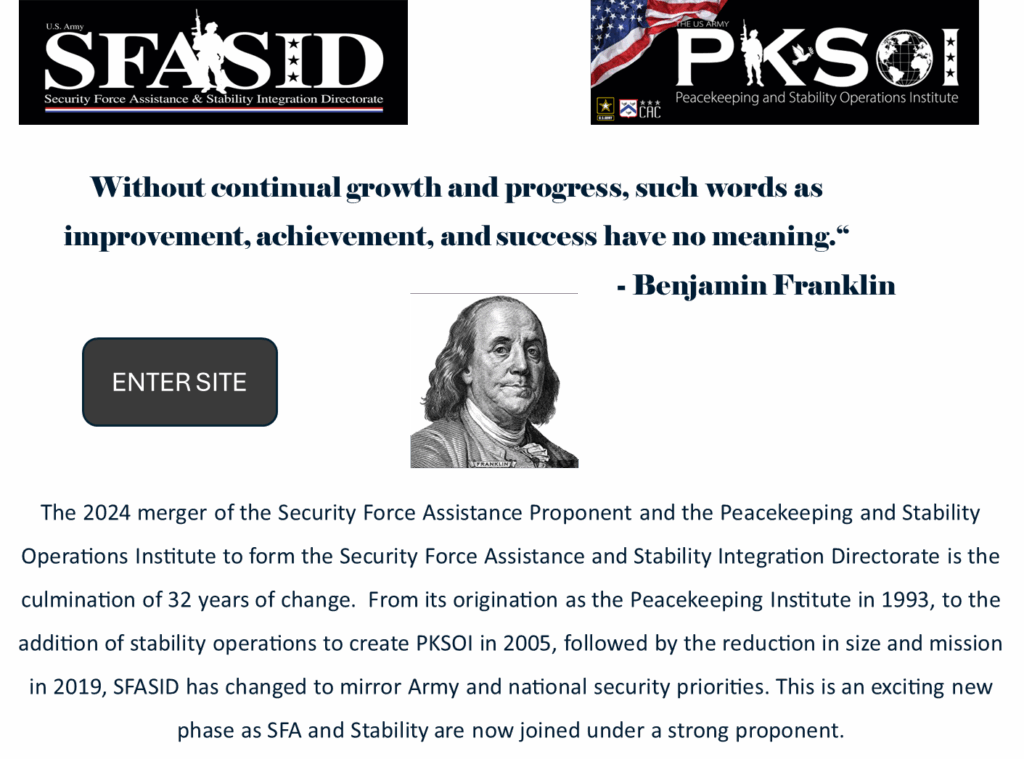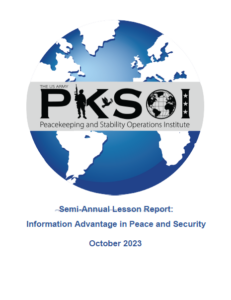Semi-Annual Lesson Report: Information Advantage in Peace and Stability October 2023
Information is necessary to make decisions. It is a logical assumption that more information leads to more successful outcomes. Therefore, decision-makers of all levels and professional fields seek more data. Yet, it is increasingly obvious that more data does not always result in an information advantage over competitors. The policymakers and practitioners engaged in peace and security efforts face the same information advantage challenges and opportunities as any other global societal entity. Big Data overwhelms everyone; picking the right data to call information is often the proverbial needle-in-a-haystack.
To address the data haystack, the United Nations (UN) Secretary-General promotes the UN’s Data Strategy with “focus not on process, but on learning…to deliver data use cases that add value for stakeholders based on our vision, outcomes and principles” and it recognizes potential “shifts in people and culture, partnerships, data governance and technology.” Yet, despite an international entity’s published strategy, a group-effort information advantage conundrum—no matter the level or depth of an organization—is that the word information and all its related terms have distinct meanings. At the same time, the differences in meaning are often too dense or nuanced for the average person to find useful… Beyond the plethora of information-related terms and definitions to confound users, some terms are burdened by prejudice. A classic example of a prejudicial term is the word intelligence, for which many societal entities disdain. Yet intelligence is commonly understood as analyzed information. Or, as one source describes, intelligence is information “that is capable of being understood,” “with added value,” and “evaluated in context to its source and reliability.” Therefore, the contempt for the term seems irrational unless one understands the underlying principles for it.
The US Army’s updated doctrine, ADP 3-13, Information, publication pending, acknowledges the conundrum of terms and definitions. Referring to the draft document, one advocate notes that “Information means different things depending on context,” but the projected doctrine intends to “provide a foundation for thinking about information and the information dimension, as well as a framework for how Army forces, as part of a joint force, gain and maintain an information advantage.”
Please click on links below to open or download the Semi-Annual Lesson Report:


